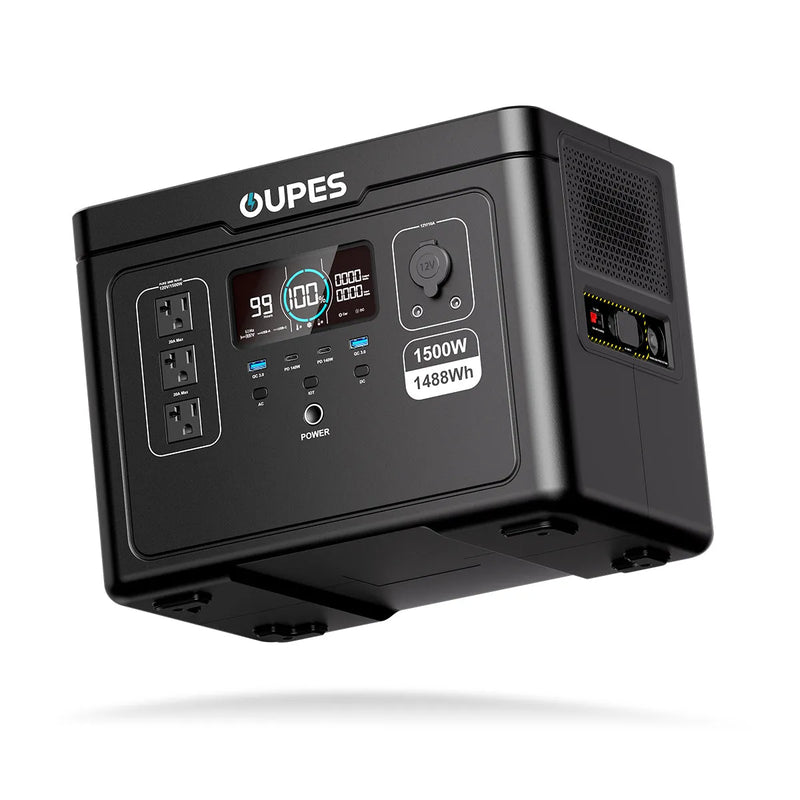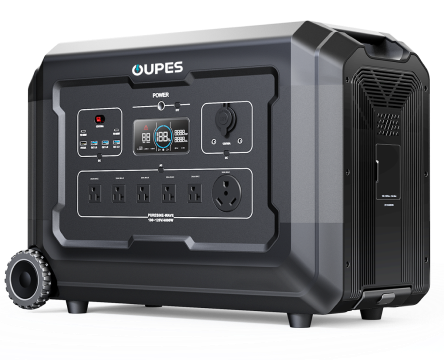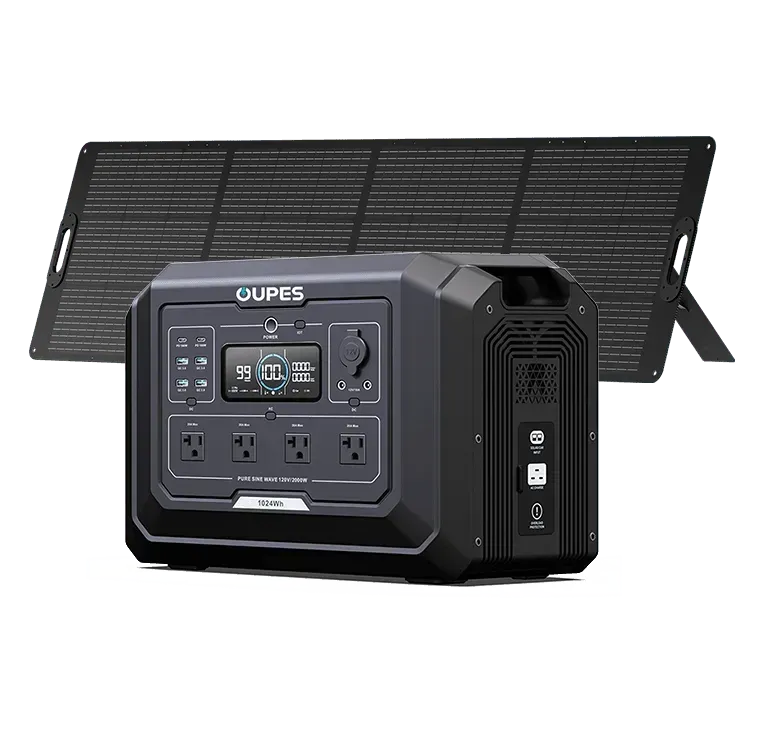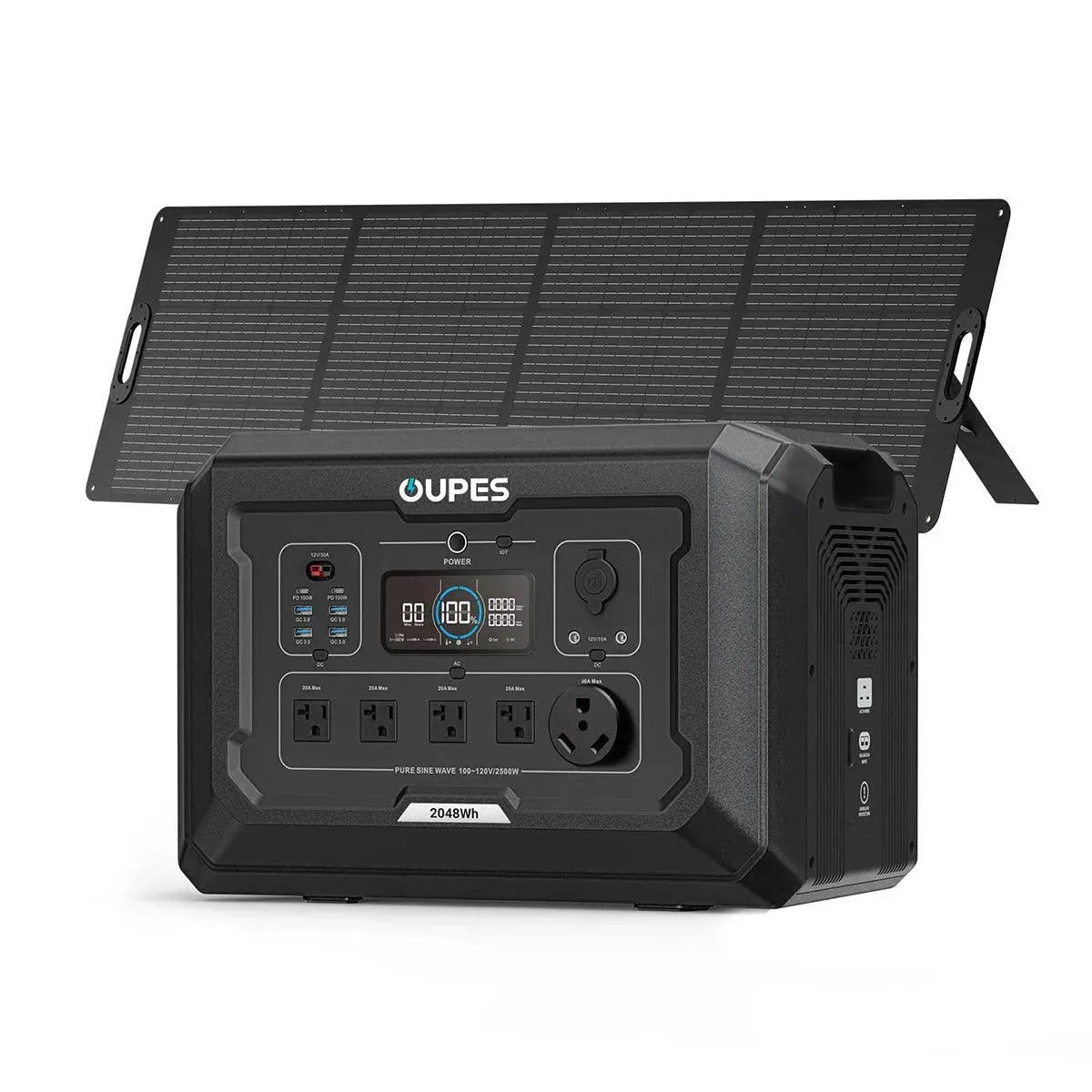
Imagine a future where your energy needs are met with nothing more than sunshine — quiet, clean, and endlessly renewable. As traditional energy sources become more expensive and environmental concerns grow, many people are turning their attention to solar generators. But are solar generators really any good? Can they power your essential devices, and are they worth the investment?
This article explores the practical value of solar generators, how they work, and the scenarios where they truly shine. Whether you're prepping for emergencies, looking to reduce your carbon footprint, or planning your next off-grid adventure, understanding the capabilities of solar generators is key to making an informed decision.
How Do Solar Generators Work?
At their core, solar generators are systems designed to convert sunlight into electricity and store that power for later use. Unlike traditional fuel-based generators, solar generators operate silently and without emissions. A typical solar generator kit includes solar panels, a battery, a charge controller, and an inverter. Each component plays a crucial role in ensuring the generator functions efficiently.
When sunlight hits the solar panels, photovoltaic cells capture this energy and convert it into direct current (DC) electricity. This DC electricity then flows into a charge controller, which regulates the voltage and current coming from the panels to prevent overcharging the battery. The energy is stored in the battery — often a lithium iron phosphate (LiFePO4) battery due to its stability and longevity — and converted into alternating current (AC) via an inverter, making it usable for household appliances, tools, and electronic devices.
Modern solar generators, like those offered by OUPES, often feature intuitive displays, multiple output ports, and even app connectivity for real-time monitoring and control. They can be recharged not only by solar panels but also through wall outlets or car adapters, offering flexibility for a wide range of users and environments.
The process is seamless and self-contained, making solar generators ideal for people who need a reliable and eco-friendly backup power source. Whether it's for an RV trip, emergency preparedness, or everyday use in remote areas, the technology has matured to a point where it offers serious utility.
The Benefits of Using a Solar Generator
One of the standout advantages of solar generators is their environmental impact — or rather, the lack of it. Since they don’t burn fossil fuels, they emit no harmful gases like carbon monoxide, making them a clean and sustainable energy source. This makes them perfect not just for personal use but also for environmentally conscious consumers who want to reduce their carbon footprint.
Another significant benefit is operational silence. Traditional gas generators are noisy, often producing over 60 decibels of sound, which can be disruptive in campgrounds or residential areas. Solar generators, on the other hand, operate almost silently since there are no moving parts during energy conversion and storage. This makes them a favorite for campers, outdoor events, or use during the night when noise can be especially bothersome.
Maintenance is another area where solar generators shine. Without engines, spark plugs, or filters to worry about, upkeep is minimal. Occasional cleaning of the solar panels and ensuring the battery is charged during long storage periods are often all that’s needed. This simplicity is appealing for users who want a set-it-and-forget-it backup power option.
Cost savings can also be significant over time. While the initial purchase price of a solar generator might be higher than a gas-powered unit, the ongoing cost is negligible. There’s no need to purchase fuel, and depending on your usage and solar availability, you may never have to pay to recharge it. In areas prone to blackouts or natural disasters, the ability to generate and store power independently can even add value to your home.
Are Solar Generators Practical for Everyday Use?
One of the most common questions about solar generators is whether they can handle daily energy demands. The answer largely depends on the type and size of the solar generator and the power requirements of your devices. For light to moderate usage — such as charging phones, laptops, and running small kitchen appliances — a mid-sized unit like those offered by OUPES is more than capable.
For heavier loads, such as powering refrigerators, air conditioners, or power tools, you’ll need a high-capacity solar generator with a strong inverter output and ample battery storage. Models equipped with expandable battery packs or those designed for home backup purposes are better suited for these demands. When paired with efficient energy usage and solar panel arrays, it is entirely feasible to use solar generators in a daily capacity, especially in off-grid living scenarios.
In rural or developing areas, solar generators provide access to electricity where grid connections are unavailable or unreliable. This makes them not just a backup solution but a primary source of energy for millions worldwide. Their portability also makes them ideal for people who live mobile lifestyles, such as RV travelers, digital nomads, and tiny house dwellers.
For urban users, solar generators serve as reliable emergency backup systems. Whether it’s due to storms, wildfires, or aging grid infrastructure, power outages are becoming more common. A well-maintained solar generator can keep your essential devices running — from CPAP machines to Wi-Fi routers — ensuring comfort and safety during blackouts.
What to Consider Before Buying a Solar Generator
Not all solar generators are created equal, and choosing the right one depends on your specific needs. Key factors to consider include battery capacity, inverter output, recharge options, portability, and expandability. Think about what you plan to power and for how long. A larger battery will store more energy but may be heavier and more expensive. Smaller units are easier to carry but may require more frequent recharging.
Battery chemistry is another important factor. Lithium iron phosphate (LiFePO4) batteries are known for their stability, long life cycles, and safety. They typically outperform lead-acid or standard lithium-ion batteries, making them the preferred choice for high-performance solar generators.
The inverter determines the maximum wattage the generator can output at once. If you plan to run high-wattage appliances like a coffee maker or induction cooktop, make sure the inverter can handle the surge and continuous power demands. Also, look for units with multiple types of output ports — USB-A, USB-C, AC, DC, and carports — to accommodate a wide range of devices.
Charging flexibility is a huge plus. Look for models that can recharge via solar, wall outlets, and vehicle charging to ensure you're never out of options. Some brands, like OUPES, even offer modular expandability, allowing users to add extra batteries for extended usage during long trips or outages.
Lastly, check for user-friendly features such as intuitive displays, app integration, and built-in safety protections. These elements enhance usability and provide peace of mind, especially for users who are new to solar technology.
The Future of Solar Power and Why It Matters
As solar technology advances, solar generators are becoming more efficient, compact, and affordable. The growing interest in sustainable living, coupled with rising energy costs and more frequent natural disasters, has accelerated the adoption of solar-powered solutions across the globe.
Government incentives and tax credits in many regions make solar generators an even more attractive investment. They’re not just a luxury for outdoor enthusiasts anymore — they’re becoming an essential part of emergency preparedness kits, smart homes, and energy-conscious lifestyles.
Companies like OUPES are at the forefront of this movement, offering solar power stations that combine sleek design, robust engineering, and intuitive functionality. Whether it’s for outdoor recreation, off-grid living, or simply peace of mind during unpredictable events, solar generators offer a glimpse into a more resilient and sustainable future.
Innovation in solar panels, energy storage, and smart grid integration will continue to improve performance and accessibility. Over time, we can expect solar generators to become not only more powerful but also more seamlessly integrated into daily life.
In a world where environmental impact, energy security, and independence matter more than ever, solar generators offer a compelling solution that aligns with the values of modern consumers.
In conclusion, solar generators are far more than a trend — they represent a shift toward cleaner, smarter, and more autonomous energy solutions. Whether you're preparing for emergencies, exploring the great outdoors, or simply reducing your reliance on the grid, a solar generator is a wise and worthwhile investment.
As brands like OUPES continue to innovate and improve their offerings, there has never been a better time to explore what solar power can do for you. With the right model tailored to your needs, you’ll find that solar generators are not only good — they’re essential.




























